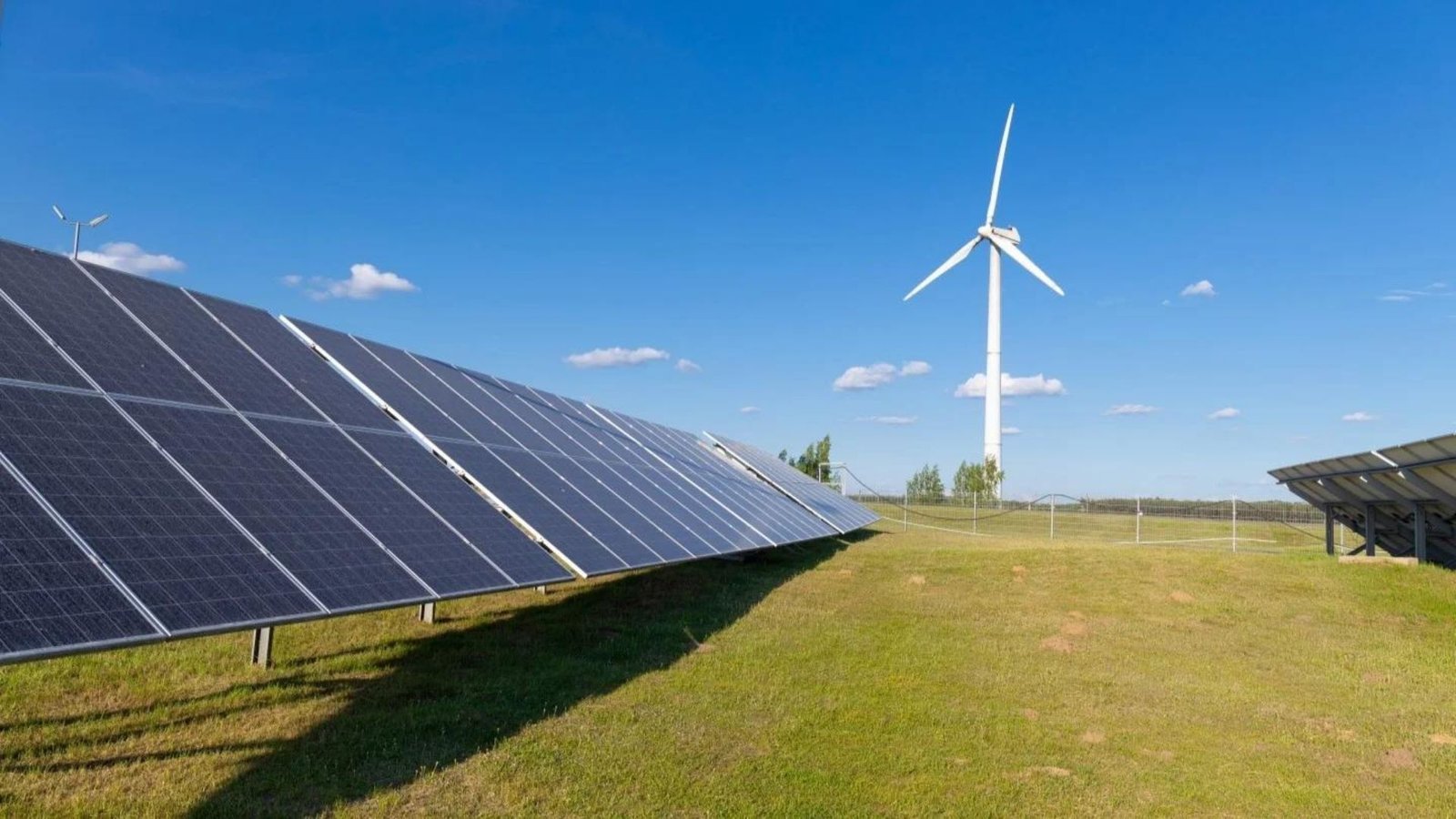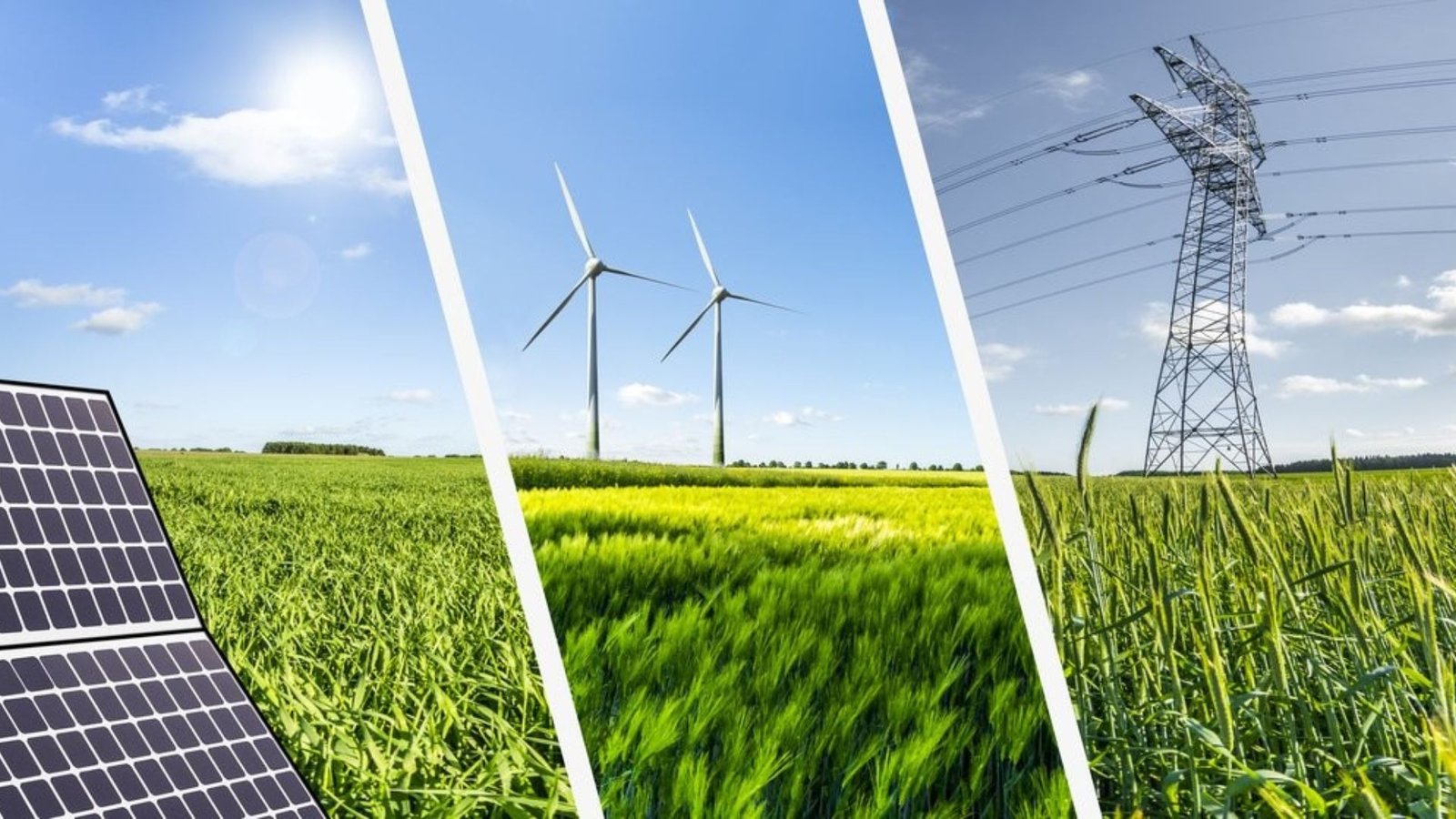Top Economic Advantages of Renewable Energy
Have you ever wondered how renewable energy can benefit our economy? In today’s dynamic energy landscape, the economic advantages of renewable sources like solar, wind, and hydroelectric power are becoming increasingly clear. Let’s get into how embracing renewable energy can lead to cost savings, job creation, and enhanced energy security.
Advantages of Renewable Energy
Cost Savings Through Renewable Energy
One of the most compelling benefits of renewable energy is its potential for cost savings. Unlike fossil fuels, which are susceptible to price fluctuations and geopolitical risks, renewable sources offer stable and often declining costs over time. This predictability not only supports long-term financial planning for businesses and households but also reduces dependence on volatile energy markets.

Top Economic Advantages of Renewable Energy
Job Creation and Economic Growth
Investing in renewable energy infrastructure stimulates economic growth and creates jobs across various sectors. From manufacturing and installation to maintenance and research, the renewable energy industry offers diverse employment opportunities. These jobs are often local, fostering community development and economic resilience through sustainable practices.
Environmental and Health Benefits
Renewable energy contributes significantly to environmental sustainability by reducing greenhouse gas emissions and other pollutants. This environmental stewardship translates into cost savings associated with mitigating climate change impacts and improving air quality. Moreover, by promoting cleaner air and water, renewable energy supports public health, thereby reducing healthcare costs and enhancing overall well-being.
Enhanced Energy Independence and Security
By diversifying energy sources, countries can enhance their energy independence and security. Renewable energy reduces reliance on imported fossil fuels, thereby mitigating geopolitical risks and stabilizing domestic energy supplies. This strategic shift not only strengthens national resilience but also insulates economies from global energy price volatility.
Long-Term Financial Stability for Businesses
Businesses benefit from the long-term financial stability offered by renewable energy solutions. Predictable energy costs enable companies to budget effectively and allocate resources efficiently. Moreover, integrating renewable energy technologies can enhance corporate sustainability profiles, appealing to environmentally conscious consumers and investors alike.
Rural Economic Development
Renewable energy projects often benefit rural communities by providing new sources of income through land leases and tax revenues. These projects can revitalize local economies by creating jobs and supporting local businesses, contributing to a more equitable distribution of economic opportunities.
Innovation and Technological Advancement
Investments in renewable energy spur innovation and technological advancement. Research and development in renewable technologies lead to breakthroughs in efficiency and cost-effectiveness, driving down the overall cost of renewable energy generation and making it more accessible globally.
Reduced Energy Poverty
Renewable energy can help alleviate energy poverty by providing affordable and reliable electricity to underserved communities. Off-grid renewable solutions such as solar lanterns and mini-grids empower households and businesses, improving quality of life and fostering economic development in remote areas.
Economic Resilience to Energy Price Shocks
Countries that invest in renewable energy are less vulnerable to energy price shocks and disruptions. By diversifying their energy mix, nations can mitigate the economic impacts of sudden price fluctuations in fossil fuel markets, ensuring stable energy supplies for industries and consumers.
Cost-Competitive Energy Solutions
Advancements in renewable energy technologies have made them increasingly cost-competitive with traditional fossil fuels. The levelized cost of electricity (LCOE) for renewables such as solar and wind has declined significantly, making them viable alternatives in both developed and emerging markets.
Lower Energy Import Bills
Transitioning to renewable energy reduces dependence on imported fossil fuels, thereby lowering energy import bills for countries. This frees up financial resources that can be redirected towards domestic development priorities, enhancing economic sovereignty and reducing trade deficits.
Sustainable Tourism and Economic Benefits
Renewable energy promotes sustainable tourism by preserving natural landscapes and reducing carbon footprints associated with the travel and hospitality industries. This attracts environmentally conscious tourists and enhances revenue streams from eco-tourism, benefiting local economies and communities.
Resilience to Climate Risks
Renewable energy contributes to climate resilience by mitigating the impacts of climate change. By reducing greenhouse gas emissions, renewables help communities adapt to changing climate conditions, protecting infrastructure, agriculture, and livelihoods from extreme weather events.
Investment Opportunities and Financial Incentives
The growing demand for renewable energy has created new investment opportunities in clean energy projects and technologies. Governments and financial institutions offer various financial incentives such as tax credits, grants, and subsidies to encourage renewable energy investments, driving economic growth and job creation.
Conclusion
In conclusion, the economic advantages of renewable energy are manifold and crucial for sustainable development. From reducing costs and creating jobs to improving environmental quality and bolstering energy security, renewable energy presents a pathway to economic prosperity and resilience. Embracing renewable technologies not only fosters a cleaner environment but also positions economies for long-term success in a rapidly evolving global landscape.
